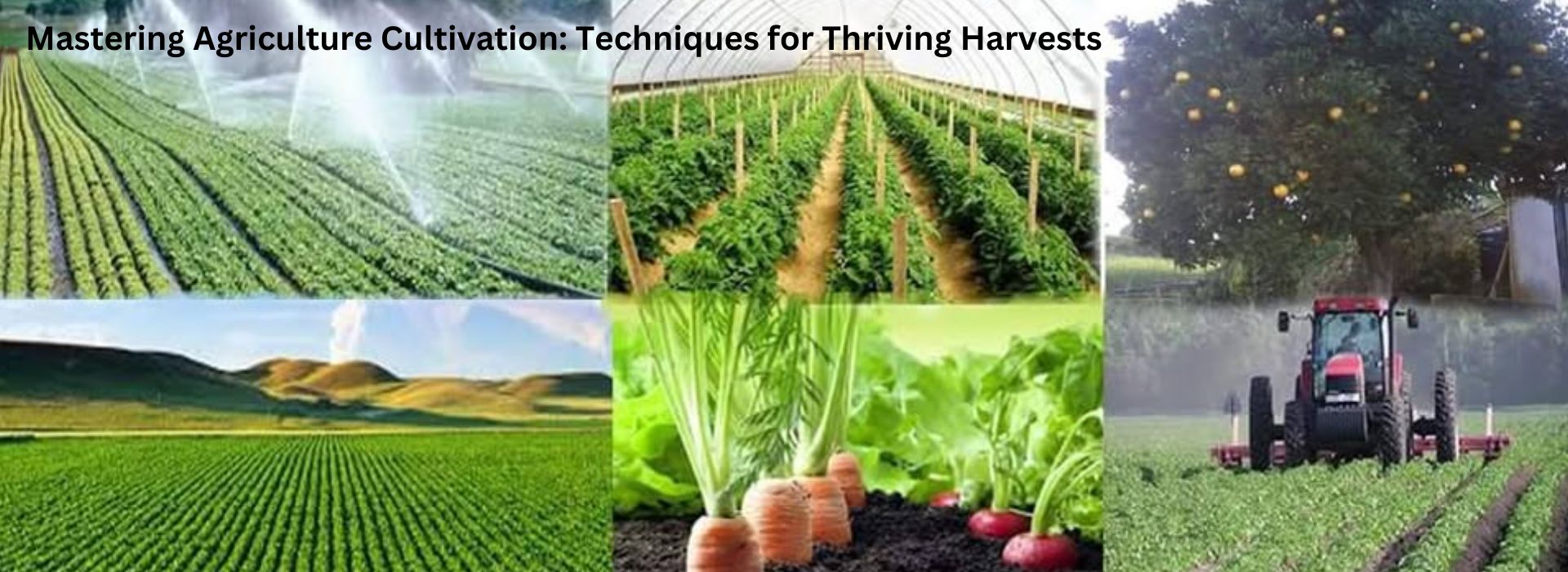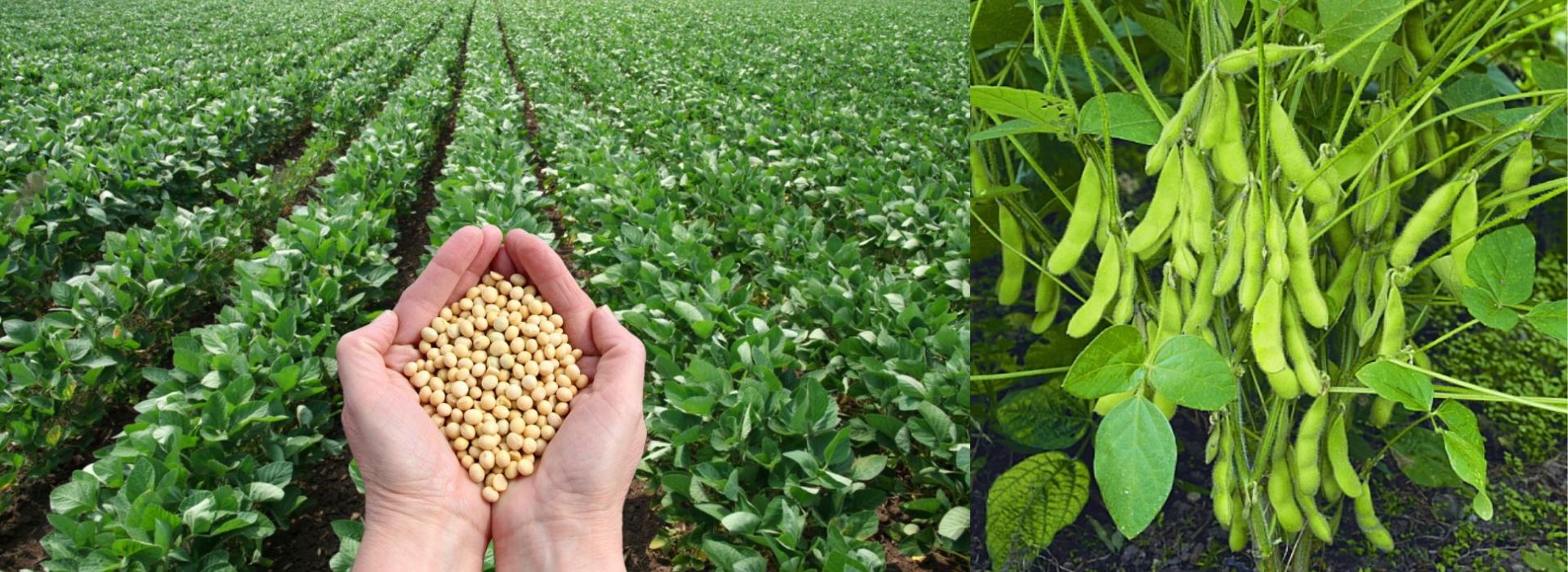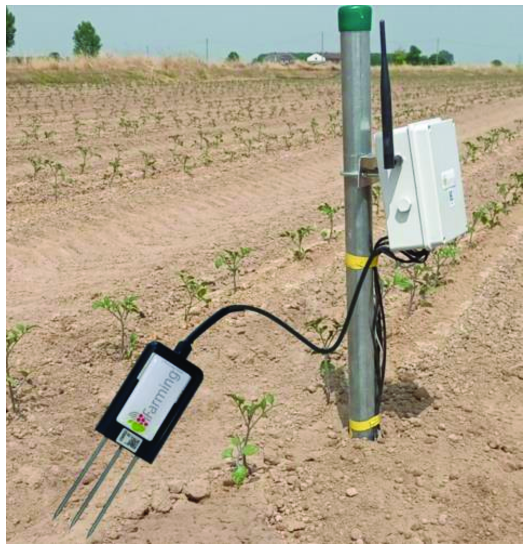Mastering Agriculture Cultivation: Techniques for Thriving Harvests
January 16, 2025Mastering
Agriculture Cultivation: Techniques for Thriving Harvests
Agriculture
is not just about planting seeds and waiting for them to grow. It’s a complex
process that involves understanding soil health, weather patterns, crop
varieties, and sustainable practices. Mastering agriculture cultivation
requires the right techniques, dedication, and innovative approaches to achieve
thriving harvests.
This
blog provides insights into essential cultivation methods and tips to help
farmers optimize their yields while promoting sustainability.
1.
Start with Healthy Soil
Soil
is the foundation of agriculture. Healthy soil provides the nutrients and
structure necessary for crops to thrive.
- Soil
Testing: Conduct
regular soil tests to assess pH levels, nutrient content, and organic
matter. Adjust fertility with organic compost or specific fertilizers.
- Add Organic
Matter: Incorporate
compost, manure, and cover crops to boost soil fertility and microbial
activity.
- Prevent
Erosion: Use
mulching, terracing, or contour plowing to retain topsoil and nutrients.
2.
Choose the Right Crops
Selecting
the right crops for your region and soil type is crucial for a successful
harvest.
- Understand
Local Conditions:
Consider temperature, rainfall, and growing season length.
- Crop
Rotation: Rotate
crops annually to improve soil fertility and reduce pest infestations.
- High-Yield
Varieties: Opt for
improved seed varieties that are resistant to pests and diseases.
3.
Water Management for Maximum Efficiency
Efficient
irrigation is key to thriving crops while conserving water resources.
- Drip
Irrigation: This method
delivers water directly to plant roots, reducing wastage.
- Rainwater
Harvesting: Store
rainwater for irrigation during dry periods.
- Smart
Irrigation Systems: Use
sensors and automation to irrigate fields based on real-time soil moisture
data.
4.
Embrace Sustainable Practices
Sustainable
agriculture ensures long-term productivity without harming the environment.
- Integrated
Pest Management (IPM):
Combine biological, cultural, and mechanical methods to manage pests while
minimizing chemical use.
- Reduce
Chemical Inputs: Opt for
organic fertilizers and natural pest repellents to maintain soil and crop
health.
- Biodiversity: Incorporate diverse crops and
agroforestry to create a balanced ecosystem.
5.
Precision Agriculture: Leveraging Technology
Technology
can revolutionize the way farming is done, making it more efficient and
productive.
- GPS and
Mapping: Create
detailed field maps for monitoring soil conditions and planning
cultivation.
- Drones: Use drones for crop surveillance, pest
detection, and targeted spraying.
- Mobile Apps: Access weather forecasts, crop
advisories, and market trends to make informed decisions.
6.
Timely Planting and Harvesting
Timing
is everything in agriculture.
- Seasonal
Knowledge: Plant crops
at the optimal time for your region to maximize growth potential.
- Weather
Monitoring: Use weather
apps or advisories to avoid planting during extreme conditions.
- Efficient
Harvesting: Harvest
crops at the right maturity stage to ensure maximum quality and yield.
7.
Combat Climate Challenges
Climate
change is a growing concern for farmers worldwide. Adapting to its effects is
vital for long-term success.
- Climate-Resilient
Crops: Choose
varieties that can withstand droughts, floods, or temperature
fluctuations.
- Soil
Conservation Practices:
Adopt no-till farming and cover cropping to retain moisture and carbon.
- Disaster
Preparedness: Build
infrastructure to protect crops from unexpected weather events like storms
or heatwaves.
8.
Post-Harvest Management
Efficient
handling after harvest ensures that crops retain their quality and fetch better
prices.
- Storage
Solutions: Invest in
proper storage facilities to prevent spoilage.
- Processing: Add value to crops through cleaning,
packaging, or processing into finished goods.
- Market
Access: Use digital
platforms to connect directly with buyers and fetch competitive prices.
Case
Studies: Success Stories in Agriculture
- Tamil Nadu’s
Rice Revolution: Farmers
combined organic fertilizers with precision irrigation, increasing yields
by 25% while saving water.
- Himachal
Apple Orchards: Growers
adopted drone technology for pest control and monitoring, leading to
higher-quality fruit and reduced losses.
Conclusion
Mastering
agriculture cultivation is about integrating traditional knowledge with modern
techniques. By focusing on soil health, sustainable practices, and advanced
technology, farmers can achieve thriving harvests while safeguarding the
environment.
Agriculture
is not just an occupation; it’s a way of life that feeds the world. By
implementing these cultivation strategies, farmers can ensure both productivity
and sustainability for generations to come.
At krishibazaar.in,
you can find and buy various agricultural products. For agricultural guidance
on selecting the most suitable products for your crops, please contact or
WhatsApp at +917887880887






Guest reviews
No reviews found for this Blog